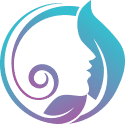Postpartum Hair Loss: Symptoms and Treatment
In the midst of giving birth and assimilating your schedule to the needs of your newborn, you have a new body to tend to and take care of. On top of that, every woman suffers from postpartum hair loss 3 months after giving birth. We are lucky enough to collaborate with Shab Reslan who will share her tips on what to be aware of and what to do during this time.
Shab is a trained trichologist through the United States Trichology Institute and is a member of the American Hair Loss Council. Trichology is the non-medical and holistic approach to treating scalp issues and hair loss. Your general health, underlying disease, and stress levels can affect your hair, especially postpartum. Hence, it is necessary to take a natural approach.
Even though postpartum hair loss happens to everyone, it will affect everyone differently. You’ll notice that when you are pregnant, you will have less shedding of your hair. Your hair will also feel thicker. Due to the increase in estrogen during pregnancy, your hair will remain in the Growth phase for much longer before it sheds, therefore, its hanging on to more and shedding much less. Prenatal vitamins also assist with keeping your hair healthy. Once your estrogen levels drop postpartum, you will end up losing all of the hair you were supposed to shed normally and that’s when the results can sometimes be shocking to new moms.
The good news is that you can control some of this hair loss and ensure that the hair which is growing back in, grows back optimally.. The first thing to know is to be aware that this is going to happen postpartum. The stress of having a newborn takes a toll on your body. And The stress of losing your hair on top of that can manifest as well. Stress can increase cortisol levels which can increase testosterone levels. This can further affect the balance between estrogen and testosterone leading to more hair loss. If you are aware of this fact, the stress will not affect you as much as you can further take action to prevent it.
The second thing that you can do is to practice a healthy lifestyle and be aware of any underlying diseases that can affect your lair loss. It is important to eat a well balanced diet during this time to avoid any inflammation from affecting your hormone levels. More importantly, the proper supplementation postpartum can help your body adjust and return to normal. It is recommended that you continue to take the following vitamins and minerals postpartum or have your levels checked out by a doctor, should you have any deficiencies in the following:
Biotin
B6
B7
B9
Magnesium
Iron
Vitamin A
Vitamin D3
Zinc
Animal Protein
Prenatal Vitamins
It’s important to know that this hair loss at this time is only a phase and will resolve itself within a year after your baby is born. Taking the right care of your body and reducing stress will help alleviate the amount of hair loss you might suffer from. For more information and a list of events being held in NYC by Shab, please visit hairlikehers.co and check out her podcast Hair Like Hers to learn all about women’s hair health and wellness.
